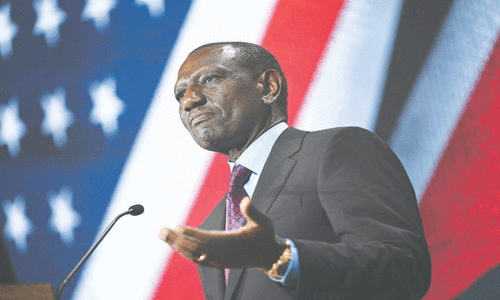SINCE June 23, the fateful date commonly known for Brexit when a majority of English electorate voted in favour of leaving the European Union, there have been discussions galore in the media here about the likelihood of a similar mandate in France.
Analysts are divided over such a possibility and frequent opinion polls conducted by newspapers and private networks remain confusing. One can nevertheless easily conclude the French have already started thinking about an inevitable referendum on Frexit.
Fervour was intense in the early 1980s over creating a European Union that would go beyond all historical and geographical frontiers, allowing its citizens to trade with each other, learn each others’ cultures and languages and, most of all, avoid such conflicts that had led to the First and Second World Wars.
But, by the beginning of the 21st century that dream faded and there remained little doubt that the Europeans were fast moving toward Aldous Huxley’s Brave New World where people have no power and rules are made by a select group of bureaucrats without any obligation to respect democratic opinions.
Today some 170,000 EU functionaries work in Brussels. Of these, 10,000 high-ranking “Eurocrats”, as they are sarcastically called, earn between 15 to 20,000 euros per month and pay no taxes. They run the show with no compulsion to submit their decisions to the European Parliament.
Brexit no doubt owes its success to two decades of campaigns by Eurosceptic leaders like Nigel Farage and Boris Johnson. In France there has been no such dedicated struggle. England had another advantage: it never became part of the Euro-zone and kept its pound-sterling value intact all these years.
Among many reasons for doubts about the authenticity of the European Union is also the fact that the Eurocrats have in the past successively ignored democratic verdicts. To take only a few examples, in 2007 Ireland rejected the EU Constitution through a referendum. This verdict was left to lag behind until the country was forced to organise a second referendum in 2009 to get a positive vote.
Similarly in 2005 French voters rejected the Lisbon Treaty through which the Eurocrats had intended to increase their power. The verdict of this referendum too was pompously dumped into the wastebasket.
The force behind this arrogance, as explained by analyst Jean Leauvergeat, is the fact that Eurocrats are totally under the influence of the United States and according to American capitalist ideology all notions of history, culture, art, literature and civilisation come in the way of business. The human being is, above all, only a consumer. One explanation why the Americans tried, unsuccessfully as it is, to persuade London to drop the referendum.
The same logic applies to the creation of the Schengen zone. Anyone stepping into this space that includes all the European Union countries immediately becomes an EU citizen without making an effort to adapt to the European way of life.
According to Pierre Lellouche, former Af-Pak ambassador under President Nicolas Sarkozy, the European Union has transformed itself into an NGO whose main job now it is to go to the Italian and Spanish coasts and bring illegal immigrants to the shore.
Then there are those to whom Brexit is only the beginning of a long, unstoppable dismantlement process of the European Union. Louis Aliot, a National Front leader, says: “A lot has to be done in order to get rid of this blind, authoritarian and haughty bureaucracy and to replace it with a system based on collaboration and cooperation.”
As this troublesome story deserves to end in a more joyous manner, let’s not forget this is hardly the first ever Brexit in English history. In 1533 King Henry VIII broke off the Roman Catholic hierarchy by naming himself ‘Supreme Head of the Church of England’.
The writer is a journalist based in Paris.
Published in Dawn, July 10th, 2016













































Dear visitor, the comments section is undergoing an overhaul and will return soon.